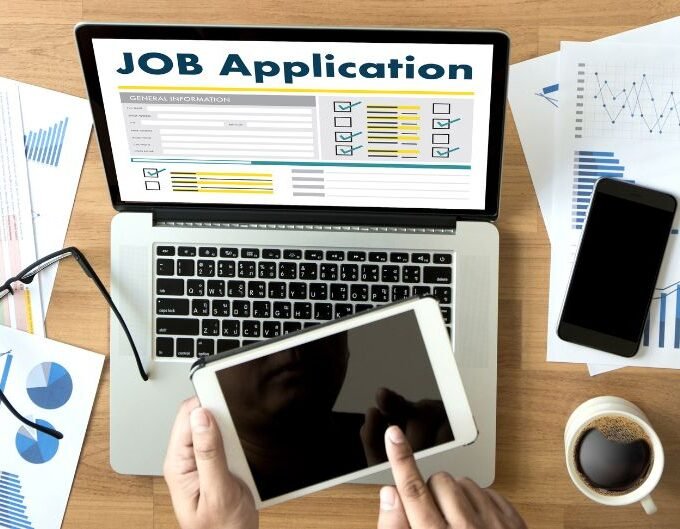If you want to make money online from home, then proofreading is one of the best ways to do that. The best part is that you don’t need any degree or special qualifications to become a proofreader.
It is ideal for people with a passion for reading and writing and has an eye for detail. Clients will pay you to identify and correct grammar and typo mistakes.
Does it sound like something you’d love to do? This article shares how to become a proofreader with no experience, how to get started, and where to get remote proofreading jobs.
What Does a Proofreader Do?
A proofreader checks for grammar, spelling, or punctuation errors in content as the final check after writing and editing.
They also check if dates or numbers are written correctly and change any formatting issues such as missing page numbers, lack of clarity, and inconsistency.

Proofreading is one of the best ways to make extra money online because it is simple, and anyone can do it. Some of the proofreading techniques include reading out aloud, reading slowly line by line, reading backward, or having a checklist of errors that you expect.
The goal is to double-check everything to ensure you have removed all the errors.
What Qualifications Do You Need to Be a Proofreader?
You don’t need any degree in English to become a proofreader, and there is no official certificate to become one.
So, no matter your background, you can get started and start earning. However, the qualifications may depend on the field. For example, for scientific proofreaders in a health niche, having a degree in the relevant subject may make you stand out from other freelancers.
So you may consider specializing in a niche that you have a background or expertise in. However, what most clients look for is just relevant experience and demonstrated skills that you can do the job.
How to Become a Proofreader With No Experience
Now let’s look at the step-by-step plan on how to become a proofreader with no experience with a step-by-step guide to make it easy for you.
1. Get the right skills
Although you don’t need a degree to become a proofreader, having the right skills helps you to succeed as a proofreader.
You need to have a strong understanding of the English language and basic knowledge of spelling, punctuation, grammar, and basic formatting and style. Other skills that you need it to have a strong attention to detail to spot any errors, be able to submit work within the deadlines, and have great written and verbal communication skills.

You can consider free online certification courses to increase your skill level and start on the right path. Learn all the rules of grammar, punctuation, verb tenses, hyphenation, capitalization, and sentence structure.
You need to memorize all the rules but having a good understanding will help you notice mistakes faster. Consider taking an online proofreading course whether free or paid, to boost your confidence and make you stand out.
2. Choose your niche
I know you are wondering why you should choose a niche as a proofreader. Can’t you just be a generalist? Well, in the beginning, you can work with clients from different industries, but the best ways to choose one niche to specialize in.
For example, if you have a passion or a background in health, then you can specialize as a proofreader for health brands. You can so choose to be a legal proofreader and help clients go over the legal documents such as court reports if you understand the legal language.
Specializing in a niche makes it easy for clients to trust in your abilities even before you gain enough experience.
You can also choose your target market such as students, writers, content creators or companies like publishing houses.
You will earn more as a specialized proofreader than a generalist and have more success if you position yourself as an expert in an industry and easily market your service to your target clients and charge a premium compared to a general proofreader. Consider niches like medical, law, science or real estate.
3. Practice your skills
You need to practice your skills in your chosen niche. Remember that practice makes perfect so read as many books and articles as possible and check out for errors.
Check out your skills on free proofreading test quiz such as this or this. Once you are confident of your skills its time to apply for proofreading jobs.
You can volunteer your services to nonprofits or work for your friends and family to get some experience and improve your resume.
4. Get remote proofreading jobs
- You can either be a freelancer or a full time in house proofreader for one client, depending on your preference. The best places to get beginner jobs is job boards such as Upwork, Fiverr, Cloud Peeps, Hub staff Talent, and LinkedIn because millions of clients post jobs every day.

They may be low paying jobs, but it is a good start to improve your skills and get the right testimonials so you can increase your fees later on.
Use the experience to build your portfolio so that you can get intermediate and advanced proofreading jobs. Once you work for a few clients, you can consider paid platforms such as paid job boards such as Flex jobs.
- Another good place to find work is pitching proofreading and editing agencies and companies. Reach out to professional marketing agencies as they always search for remote freelancers. Here are some of them:
- ProofreadNOW
- ProofreadingPal
- Scribbr
- Scribendi
- Proofed
- ProofreadingServices.com
- Domainite
- Kibin
- Sibia Proofreading
- Scribe Media
- Polished Paper
- Hello Essay
- Edit 911
- Social media is another way to find proofreading jobs with no experience. Create a professional account and use social media platforms to advertise your work.
- Network with other proofreaders in forums and attend networking events for writers. Join online forums for proofreaders on LinkedIn or Facebook and join the discussions. You may get links to paid work on these platforms.
- Create a freelancer website to help you showcase your skills and attract customers without relying on job boards or other platforms. Clients will quickly get in touch, learn about your services, and view your portfolio.
Best Tools for Proofreaders
You need to know the tools that proofreaders use to edit content or make their work easier. Most of the time you will manually check for missing age numbers, fronts, citations, and proper names. But some tools can make your work easier. Here are some of them:
- Writing and editing platforms such as Microsoft Word and Google Docs. These help you to edit your work using their basic grammar and spelling check.

For example, you need to know how to use functions such as track changes and comments to highlight any questions or leave feedback to the client. You may also use Adobe Acrobat to edit PDF documents.
- Grammarly helps with basic editing and sentence structure and is suitable for beginners.
- Hemingway App: the free tool helps you to improve readability, word choice, and sentence structure
- McGraw Hill Proofreading Guidebook: The eBook will give you a step-by-step guide to proofreading, especially if you have no proofreading certification.
- Major style guides: you need to understand different style guides to follow when proofreading your clients’ work to ensure the work follows the rules depending on the field or dialect. Some style guides include Oxford, AP Stylebook, Chicago, APA, and MLA. Your client will specify which style guide they want you to follow.
FAQs
How do I get my first proofreading job?
To become a proofreader you need to understand different types of writing styles, get the necessary training, and gain experience, and use your portfolio to apply for jobs.
What skills does a proofreader need?
A proofreader needs to have skills such as an eye for detail, writing, knowledge of English, and excellent written and verbal communication skills.
How do I become a self taught proofreader?
You don’t need a degree to become a proofreader. You can be a self taught proofreader if you understand English, have strong attention to detail, have knowledge of style guides such as APA, MLA, Chicago, or what style guide the clients need, and be able to meet deadlines.
What is the difference between editing and proofreading?
Proofreading involves checking for minor grammar errors, typos line by line and correcting them as the last process of the writing process. On the other hand, editing involves making major changes such as sentence structure and rephrasing the content to make sure it has clarity and the meaning makes sense.
Final Thoughts
There are millions of websites online and a multitude of clients who put out online or print content, so there’s no shortage of proofreading jobs. You are needed to help crosscheck their content to ensure it is error free. Working as a proofreader allows you to use your creative skills to do the work you love and set your schedule and work from wherever you are in the world. Use this guide on how to become a proofreader with no experience to kickstart your journey as a top paid proofreader.











